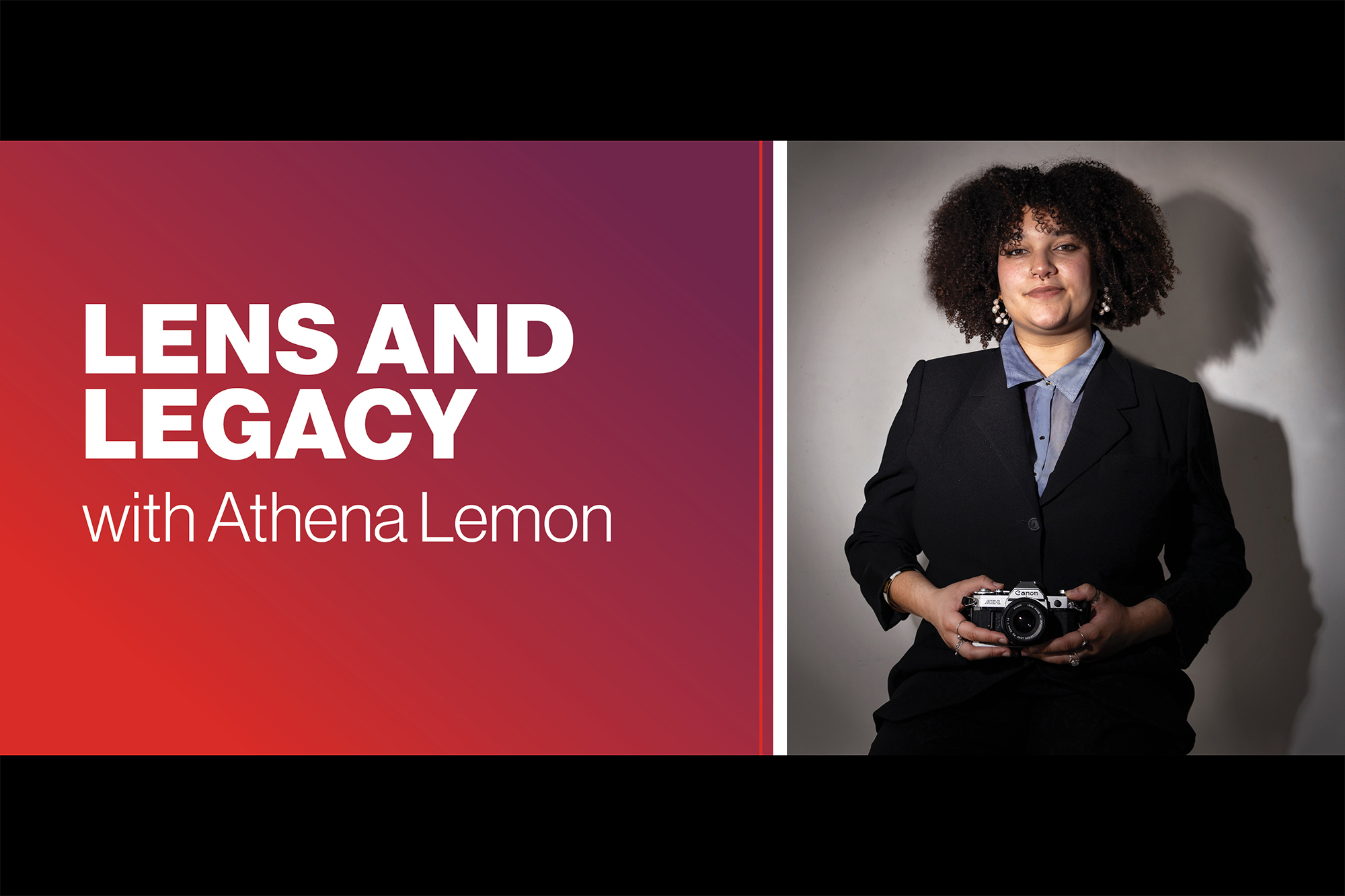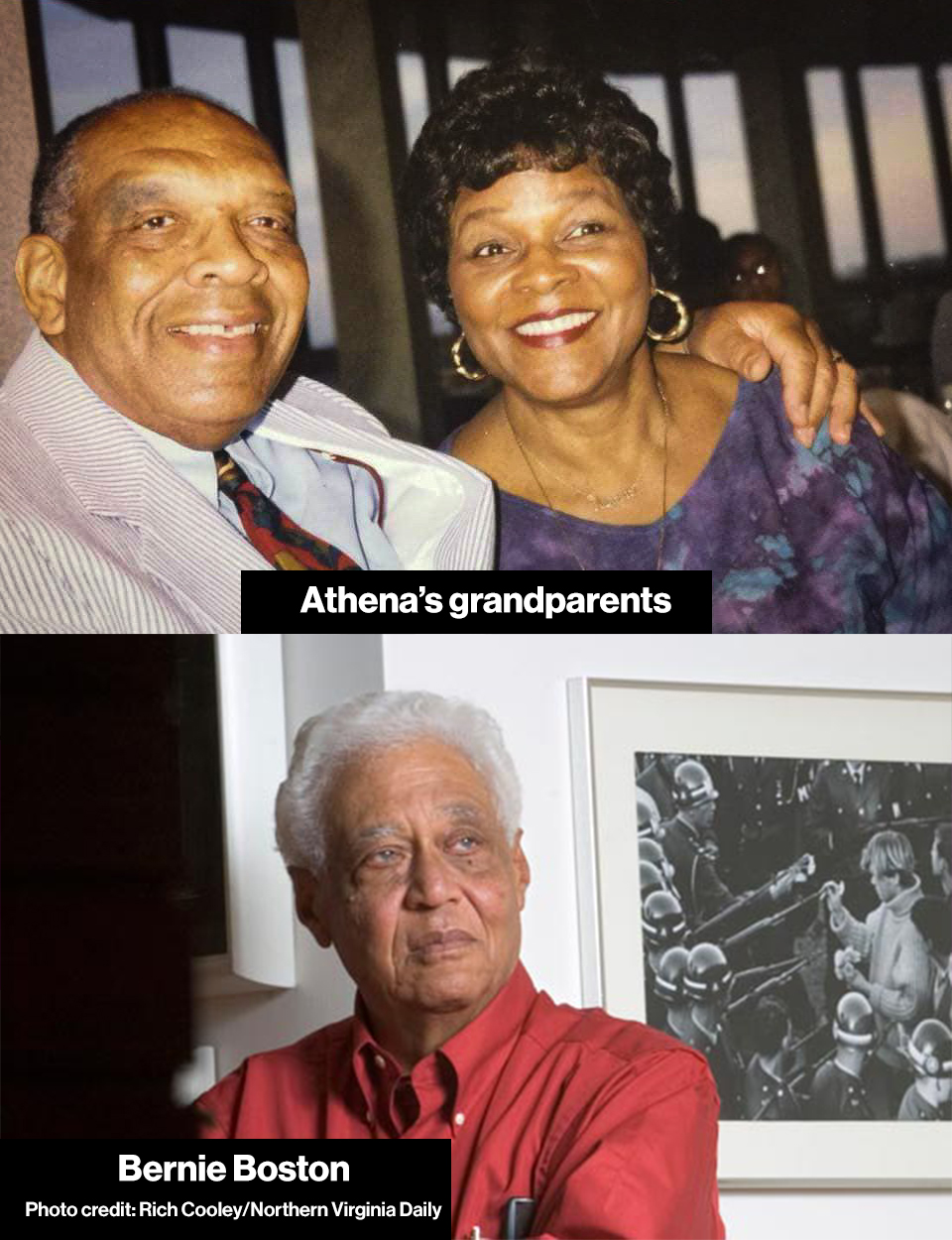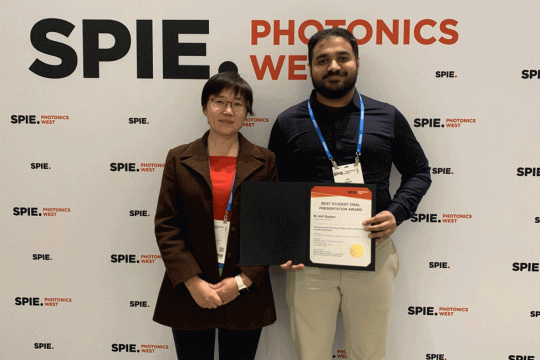Celebrating Black history: A love of old family photos sparks new exhibition
Whenever Athena Lemon would visit her grandparents, Alton Toussaint and August Mary Lemon, she loved looking through all of the family photo albums in the living room. Her grandfather, a Morehouse College grad and her grandmother, a graduate of Grady Nursing School grew up in the midst of the Jim Crow era and the Civil Rights Movement. Both were very active in social justice work.
Lemon is a fourth-year student in the School of Individualized Study, with concentrations in art conservation and archival studies, and a photography minor. It was those family photographs and a class with visual artist and RIT School of Photographic Arts and Sciences Assistant Professor Joshua Rashaad McFadden that inspired her new exhibition Lens and Legacy: A Visual Dialogue Between Bernie Boston and the Ramsey-Lemon Archive, now open in RIT’s University Gallery.
Athena Lemon's grandparents, top, and Bernie Boston '55.
Bernie Boston graduated from RIT in 1955 and became one of this country’s most esteemed photojournalists, spending more than 40 years chronicling social and political unrest. One of his photographs, “Flower Power,” taken at an anti-war demonstration in 1967, was a finalist for the Pulitzer Prize. His complete photo archive is held in RIT Archives.
Lemon said she was first introduced to Boston’s work when McFadden’s class visited RIT Archives three times to view the collection. The students used photographs for their final projects.
“For our final project we had the opportunity to see original prints of major historical events that helped shape the Civil Rights Movement," Lemon said. "At times they were hard to digest emotionally as I had heard firsthand accounts from my family growing up. It sparked a hunger to know more about first-person accounts, or rather reactions from others who lived during that time.”
Her new exhibition weaves her family archives with the works of Boston.
“Spending most of my life enveloped with stories and photographs of their adventures was something that I took for granted until I got to college," Lemon said. "It wasn’t until I took Professor McFadden’s class, Race, Civil Rights, and Photography, that I really started to truly appreciate the meticulous archive my grandmother tended to her whole life. As Black Americans, we have a rich history of using photographs to promote change both in and out of the community, combatting media-pushed stereotypes with our own representation.”
In addition to McFadden, Lemon credits several others who helped put this exhibition together: University Archivist Elizabeth Call and staff, University Gallery and Shop One Director Wendy Marks, Executive Director for Culture and Diversity Education Taj Smith, with the Division of Diversity and Inclusion, and Command G, RIT’s student-run graphic design firm. Call provided overall management of the project and helped Lemon flesh out the concept to blend Boston’s photographs and negatives with Lemon’s family photos.
Call said it is important for RIT Archives to play a central role in supporting the educational mission of RIT and provide experiential experiences for RIT students.
“This specific exhibit is important to me because it exemplifies the experiences we want RIT students to have with the collections we steward — we want them to feel connected and represented," Call said. "We want them to build off the collections their own stories, thereby deepening their understanding of the world and their place in it.”
Lemon said this was a five-month-long project and definitely a team effort. She is proud of the end result.
“The hope for this exhibition is to enlighten and inspire others to dig deep into their own familial history, to inspire revelations that might combat preconceived notions about what it means to be Black American," Lemon said. "By putting my family archive in conversation with Bernie Boston’s photographs from his time as a White House press photographer, I was able to start to bridge that gap.”
Lens and Legacy: A Visual Dialogue Between Bernie Boston and the Ramsey-Lemon Archive runs through March 9 in RIT's University Gallery.












